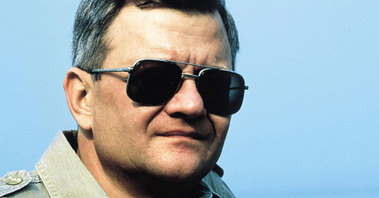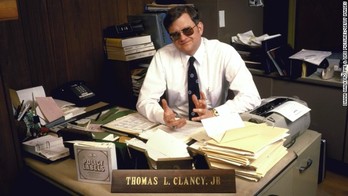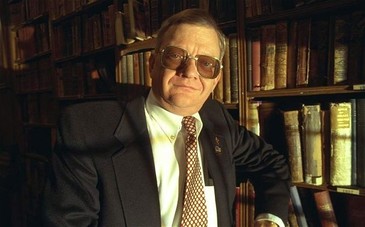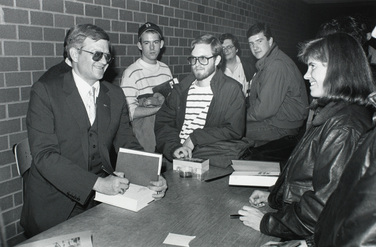
As many of you may now know, it was announced yesterday that multi-million-selling author Tom Clancy has passed away. The internet has changed the way we receive such news, which now often comes in extremely short, rapid chunks shared over social networks and spread across search results. Every story on every news agency page is listed as in development. Even so, it never feels like less of a loss. Clancy, aged just 66, died at Baltimore’s Johns Hopkins hospital following a short illness, as confirmed by his doctors. He leaves behind a massive, multi-media empire and a legacy that has hugely influenced a whole generation of thriller writers, film-makers and game designers the world over.

A Maryland native, Clancy initially worked as an insurance agent before making his astoundingly successful literary debut. His keen interest in military organizations and technology led to extensive research and careful structuring of his manuscripts. After initially being turned down by a large number of mainstream publishers, the Cold War thriller The Hunt For Red October caught the attention of the US Naval Institute Press, thanks in no small part to the intricate technical detail, thoughtful political overtones and immense cast of supporting characters, led by CIA analyst Jack Ryan.

Clancy soon branched out in other media, taking an entrepreneurial approach to his budding career. In 1996 he co-founded Red Storm Entertainment, named after his most critically acclaimed and highly-rated novel, Red Storm Rising. The company would go on to release the massively successful Rainbow Six series of games – again named after a novel, on which the games are loosely based. Gaming fans may remember the very first instalment of the series as one of the greatest PC games ever made, a new take on the tactical first-person shooter than pioneered planning, preparation and team-based, communicative assault tactics over traditional shoot-’em-up action. These were followed by the Ghost Recon series and many others, turning Clancy’s name into a lucrative brand and one that an audience could trust for quality content. In 2008, game studio Ubisoft purchased Clancy’s name for an undisclosed sum and has used it as an effective marketing move ever since.

Most of his publicity shots show Clancy bearing some sort of military insignia, be it a naval crewman’s cap, a crest on his jacket or, in some cases, even a full flight suit. Despite never having been a serviceman himself, Clancy wasn’t faking it. Between novels he wrote extensive non-fiction books on military science, most notably the Guided Tour series that included technical breakdowns of nuclear warships, USAF fighter jets and even infantry regiments. He remained involved in the politics that inspired his work – he was a lifelong Republican and many of his novels bear references and dedications to Ronald Reagan, who influenced the policy of his fictional president. He defended the U.S. intelligence community, including CIA operatives and administrators among others, when they came under public scrutiny after 9/11.
Since his early days as a debut writer struggling to find a home, Clancy was wholly dedicated to his career as a purveyor of interest in all things military and political and to studying and portraying the ever-changing modern world that inspired it. Thanks in no small part to his furious work ethic, he attained a rare level of phenomenal global success that saw him ranked on the Forbes list and spread his name across book covers, cinema screens, billboards, DVD boxes and computer game posters in a hundred countries. He will have been proud to leave behind a substantial and varied body of work, and there is no doubt that hundreds of established and aspiring authors and millions of fans are grateful for it.
Clancy is survived by his second wife, freelance journalist Alexandra Marie Llewellyn.
 RSS Feed
RSS Feed
